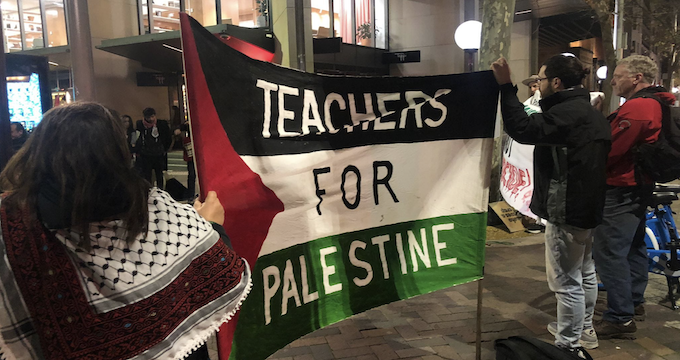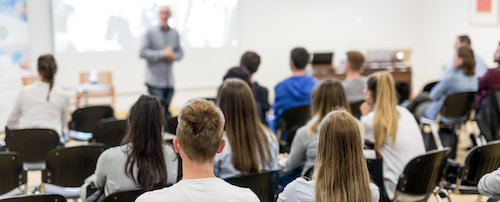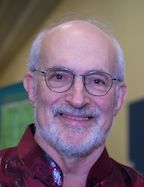As an anti-Zionist Jew and social-justice educator, I want to address two claims that I find offensive in Jillian Segal’s Plan as Australian Special Envoy to Combat Antisemitism.
One claim is that generations younger than 35 years are vulnerable to antisemitic propaganda, as too immature to grasp antisemitic history that justifies Israeli state existence. That Segal avoids saying ‘existence on Palestinian lands’ conflates antisemitism with critique of Israel’s ethnocentric occupation of those lands.
Another claim is that Segal, and those she recruits, are positioned to design curricula that guide young minds, including those Jewish, away from ‘antisemitism’.
Do Jews under 35 lack capacity to draw lessons from family histories of Holocaust cruelties, or from Tsarist pogroms that my grandparents fled as refugees? Are we simply wrong to see parallels with Israeli affliction of ongoing Nakba upon Palestinians, based on a biblical ‘right’ to establish solely-Jewish sovereignty from river to sea?
Is it antisemitic to see compelling reasons for my Jewish identity to make ethically-diasporic ‘exodus from Zionism’ (quoting Jewish scholar-activist Naomi Klein)?
My youthful biographic learning
When I was a 19-year-old undergrad at Cornell University, the Gulf of Tonkin incident incited U.S. government to replace France’s fading imperialism in Vietnam with ‘anti-Communist’ war upon Vietnamese lives and lands. I began learning capitalist-imperial histories behind such warfare at campus teach-ins and soap-box speeches on the Arts Quad. I joined the Students for a Democratic Society anti-war movement, where I learned from (hi)stories shared by professorial allies. For example, Pakistani Professor Eqbal Ahmad, friend of Palestinian social-justice icon Edward Said, told how, as a Muslim boy in a northern region of what would become India, he watched in shock as his father was murdered by Hindus seizing Muslim lands (see Ahmad, and Said’s foreword, in Confronting Empire). This precipitated meaningful educative dialogue about ethnocentric cruelties towards ‘others’.
At age 19, was I too unripe to learn from ethnically diverse scholar-activists? Such learning continues across my life, from Palestinians and other Muslims, ‘Australian’ First Nation peoples, and more. Dialogically, I learn their life (hi)stories in relation to mine. Does such learning ‘misguide’ my Jewish identity exodus from Zionism? Is Segal’s education plan morally superior to those who illustrate and explain, rather than ignore, capitalist-colonial disregard for people exploited and killed in ethno-nationalist pursuit of empire?
Educative urgencies in dark-age times
In darkening times now and ahead, I take educative insight from Antonio Gramsci, a Marxian activist, elected to Italy’s Parliament. Gramsci analysed 1920s/30s fascist rise in Europe, leading to WW2, in his prison notebooks (after arrest by Mussolini’s police). Gramsci wrote: ‘The crisis consists precisely in the fact that the old is dying and the new cannot be born; in this interregnum a great variety of morbid symptoms appear’.
I argue that a key ‘old’, now dying, is structural capacity, among those in governance power, to sustain decent life standards, and so stem social unrest, in ‘advanced-capitalist’ nations that comprise 20 per cent of global population.
Such had been made possible by colonial-imperial exploitation of labours and resources from the peripheralised 80 per cent. But this reached a limit-point decades ago, as Wallerstein explains. And yet, a horribly morbid symptom is fevered warfare as nations with military might seek regional hegemony. They do so not only to appropriate resources but to forge ethno-nationalist ‘loyalty’ among ‘proper citizens’. Israel is a prime example.
Along with climate catastrophes, desperate refugee masses, cost-of-living hikes and more, a key morbid symptom is a trend towards fascist governance in so-called ‘western democracies’ that remain wedded to capitalism. Unable to redress structurally complex life struggles among rising population numbers, far-right power-forces conjure simplistic populist ‘explanation’ of ‘good citizen’ struggles. They target ‘bad citizens’ (non-whites; women who don’t marry men, etc.) within nations, refugees seeking entry, ‘lunatic left’ judges, politicians, academics and more, as ‘vermin’ who ‘poison the blood of our country’ (Trump’s words, echoing Hitler, as Hallee Conley situates it). In turn, they ‘justify’ harshly punitive military arrests, prison camps, deportations, etc., to ‘make our nation great again’. Capitalist-colonial death throes thus intersect with racialized, sexualized and other structural inequalities at crisis pitch.
In education, far-right nationalising of morals and mentalities – which Segal’s Plan morbidly symptomizes – entails curricular negation, in schools and universities, of ‘Diversity-Equity-Inclusion’ (DEI) attention to ongoing structurally unjust inequalities.
Diasporic ethical fuel for pursuing social-educational justice
Social-justice educators must challenge selective curriculum that negates richly diverse ‘funds of knowledge’ which develop in marginalised lifeworlds. This includes ‘dark funds’ that build as useful knowledges for facing difficult lifeworld struggles. We must counter curricular narrowness, inherent in Segal’s Plan, that promotes ethnocentric assimilation of cultural diversities unequally within moral ‘cohesion-building’.
Curricular activity must instead raise consciousness to how difficult symptoms in young people’s lifeworlds link to structural crises, and in turn develop capacities to rework life contexts towards socially-just futures. This requires educator practice of a diasporic ethics that shares and creates needed knowledges and proactive capacities. It means working together with those whom we teach and from whom we must learn, inclusively building solidarities across ethnic-cultural diversities.
I advocate curricular and pedagogic practice of what Moll calls ‘relational agency’, in which students, community people and educators collectively learn-and-teach together. Doing so, they build capacities to understand and redress what I call lifeworld problems that matter.
To briefly outline this educational approach: In small affinity groups, students spend time outside of school, action-researching mattering problems they identify in their lifeworlds. In classrooms, the groups dialogue around how these varied problems share resonant links to economic, climatic, racialized, gendered and other interwoven structural crises. In both classroom dialogues and lifeworld action-research, educators and community people join students in building proactive capacities to pursue socially-just futures. Over time, visiting (hi)story sharers – such as Palestinian refugees – help to connect locally-lived struggles to globally-wider morbid symptoms of structural crisis.
Such inclusively learning across diversities starkly contrasts with what Freire describes as ‘banking pedagogy’ that deposits ethnocentric norms into students’ brains. That’s the pedagogy featured in Segal’s Plan.
A biographic coda
Against Segal’s plan to assimilate ethnic-cultural diversities into ethno-nationalist norms, I highlight my life of inclusive knowledge-sharing across diversities. My diasporic Jewish identity evolves in rich, if painful, learning from-and-with Palestinians and others who share (hi)stories of forced exodus from lands where they lived. I deeply feel the injustice that, having been born to a Jewish mother, I can choose to ‘settle’ on lands where I have not lived, while Palestinian refugees are denied right of return.
In ethical counter, I declare myself a Palestinian-Jew. I here take inspiration from the diasporic hybridity voiced by Edward Said in an interview with Israeli anti-occupation journalist Ari Shavit. Says Said:
[P]art of my critique of Zionism is that it attaches too much importance to home[land] … I want a rich fabric of some sort, which … no one can fully own. I never understood the idea of this is my place, and you are out…. Even if I were a Jew, I’d fight against it.
Responding to Said’s ‘Even if’, Shavit says: ‘You sound very Jewish’. Said replies: ‘Of course…. Let me put it this way: I’m a Jewish-Palestinian’. As an advocate for educative building of life together with diverse others in ethical solidarity, let me repeat aloud: I’m a Palestinian-Jew!!!

Lew Zipin holds adjunct positions at University of South Australia in the Education Futures unit, and at Victoria University in the Moondani Balluk Indigenous unit (as a non-Indigenous ally). His research, including in projects funded by the Australian Research Council, contributes to the Funds of Knowledge curricular approach for meaningful school engagement with rich knowledges that students inherit and develop in diversely marginalised communities. Lew is a member of Educational Researchers for Palestine.







